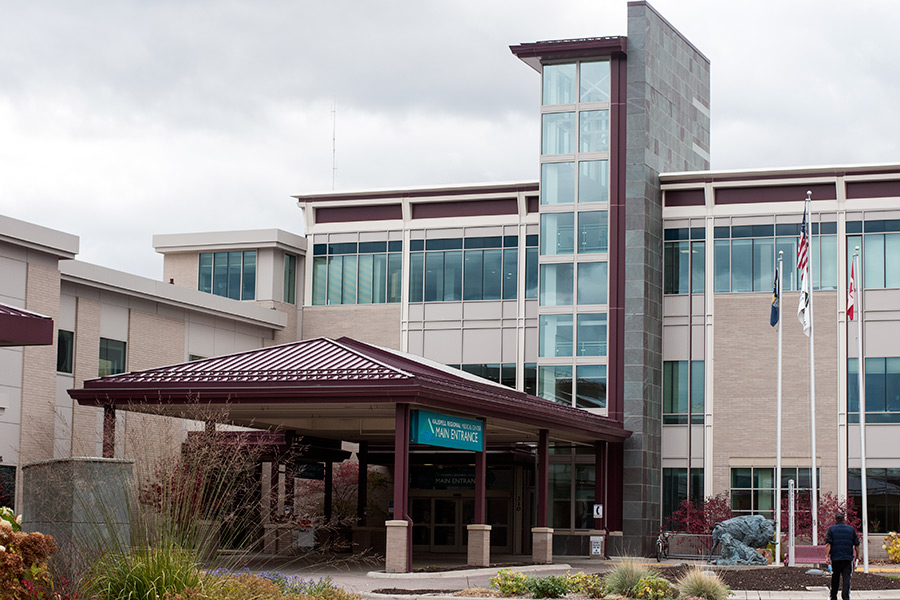It is better to be safe than sorry. That appears to be the message healthcare officials in the Flathead Valley are spreading about Ebola, a deadly virus that has killed thousands in Africa and sickened many more.
While the epicenter of the outbreak is Africa, specifically Guinea, Liberia and Sierra Leone, there have been four cases in the United States, including one fatality. Just last week, a New York City doctor who had gone overseas to treat patients was stricken with the virus. As of Oct. 27 he was in serious but stable condition.
Health officials, including those at Kalispell Regional Medical Center, say that an outbreak in Montana is unlikely and that people are more likely to die from the flu than Ebola. But clinical safety officer Bill Boyd said, “We still want to make sure we’re ready for it.”
KRMC has teamed up with North Valley Hospital, the Flathead City-County Health Department, the Flathead County Office of Emergency Services and the Flathead County Sheriff to put together an emergency response team just in case there is an outbreak in the area. The incident command team has been meeting almost daily and is looking at how it would care for someone with Ebola.
One member of that team is Dr. Jeffrey Tjaden, who was an infectious diseases doctor for the Navy before coming to KRMC. Last week he provided an extensive presentation to employees about the virus, where it comes from and how they should prepare.
Ebola was first discovered in 1976 and it is believed that bats carry the virus. Humans can contract it if they are exposed to the bodily fluids of someone who has it. Between 1976 and 2007 there had been 1,755 cases of the virus resulting in 1,133 deaths. This year, as of Oct. 22, there have been 9,936 cases and 4,877 deaths. Tjaden said those numbers are why the current outbreak is so concerning.
“This outbreak is so much bigger than previous ones,” he said. “But I don’t think we’ll see a widespread outbreak here in the United States so long as we continue to monitor the situation.”
As part of their planning, both KRMC and North Valley have identified secure rooms within their facilities to care for someone who has Ebola. The negative pressure rooms have a two-door entrance made to prevent germs from getting out. KRMC is also putting together a team of healthcare providers who are specially trained to deal with an Ebola case. If someone who recently traveled to Africa did come in to KRMC or North Valley with Ebola-like symptoms, which includes a high fever and vomiting, a blood sample would be taken and then sent to the state. If the state medical lab found that the blood tested positive for Ebola, it would then be sent to the United States Centers for Disease Control and Prevention to be tested again.
In the unlikely event that Ebola does come to Northwest Montana, local officials say it would be a team response.
“We’re all in this together and it’ll be a team effort,” said North Valley public information officer Catherine Todd.
